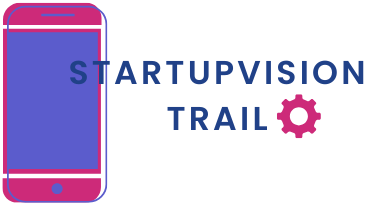Table of Contents
ToggleIn the fast-paced world of SaaS, standing out is no easy feat. With countless companies vying for attention, it’s crucial to master the art of SEO. Think of it as your secret weapon—like a superhero cape for your software. When done right, SEO can skyrocket visibility and drive leads faster than a caffeinated coder on a deadline.
Understanding SEO for SaaS Companies
SaaS companies operate in a unique environment where SEO plays a critical role in business success. Implementing effective SEO strategies improves online visibility and drives qualified leads, ultimately contributing to growth.
The Importance of SEO for SaaS
SEO holds significant importance for SaaS organizations. By optimizing their websites, these companies can reach prospective customers actively searching for solutions. Research shows that 93% of online experiences begin with search engines, highlighting the need for a strong SEO strategy. Increased rankings correlate with higher click-through rates, resulting in a more substantial volume of leads. Converting traffic into customers becomes easier when a company appears at the top of search results. Furthermore, effective SEO improves brand credibility, positioning the business as a trusted authority within its industry.
Key Differences Between SaaS and Traditional SEO
SaaS companies face distinct differences compared to traditional SEO practices. Subscription-based models often rely on recurring revenue, emphasizing the need for long-term relationships rather than one-time transactions. Content marketing becomes essential, as SaaS businesses should focus on producing educational, value-driven content that appeals to their target audience. Keywords must center on specific user queries that reveal pain points associated with software solutions. Additionally, user experience plays a crucial role; optimizing for speed and mobile-friendliness directly impacts engagement rates. Metrics such as churn rates and customer acquisition costs differ, requiring a tailored SEO approach for effective audience targeting.
Keyword Research Strategies
Effective keyword research underpins successful SEO efforts for SaaS companies. Understanding which terms potential customers use significantly impacts visibility and engagement.
Identifying Target Keywords
Start by analyzing competitors to uncover valuable keywords they rank for. Using tools like Google Keyword Planner aids in discovering relevant search terms. It’s crucial to consider search volume and competition levels. Focusing on keywords that align with the product offerings ensures that targeted traffic flows to the website. Evaluating user intent helps refine keyword choices, providing insights into the needs of prospective customers. Creating a list of potential keywords lays the groundwork for content optimization.
Long-Tail Keywords for SaaS
Prioritizing long-tail keywords enhances search targeting for SaaS offerings. These phrases often comprise three or more words and offer specific search intent. For instance, instead of targeting “project management,” opting for “best project management software for remote teams” captures a defined audience. Long-tail keywords typically have lower competition, increasing the chances of ranking higher in search results. Integrating these keywords into blog topics, landing pages, and FAQs directly addresses user inquiries. Ultimately, the use of long-tail keywords can drive quality traffic, leading to better conversion rates.
On-Page SEO Techniques
On-page SEO techniques play a critical role in optimizing SaaS websites for visibility and user engagement. These strategies focus on content, structure, and metadata to enhance search engine rankings and user experience.
Optimizing Landing Pages
Landing pages must convey clear messaging that aligns with user intent. Each page should target specific keywords, directly addressing the pain points of potential customers. High-quality visuals and concise, persuasive calls to action can significantly improve conversion rates. Using headers effectively organizes information, guiding visitors through the content seamlessly. Mobile optimization ensures that landing pages function well on various devices, further enhancing user experience.
Content Creation Best Practices
Content creation should prioritize value-driven material that educates users. The use of clear, engaging language makes content accessible and relatable. Incorporating long-tail keywords improves visibility while maintaining focus on user intent. Regularly updating content keeps it fresh and relevant to search engines. Additionally, incorporating various formats such as videos, infographics, or case studies enhances engagement and shares insights across multiple platforms.
Off-Page SEO Strategies
Off-page SEO strategies enhance a SaaS company’s authority and visibility through external efforts. These strategies involve building relationships and creating valuable content for other sites and platforms.
Building Quality Backlinks
Building quality backlinks strengthens a SaaS website’s authority in search engines. Focus on reaching out to industry-related websites for guest posting opportunities. Collaborating with influencers can generate high-quality backlinks. Creating shareable content, like infographics and research reports, attracts links naturally. According to Moz, 50% of the ranking factor stems from backlinks, making them crucial for improving search visibility. Analyzing competitor backlink profiles helps identify potential linking opportunities. Monitoring backlink performance using tools like Ahrefs ensures effective link-building strategies.
Leveraging Social Media
Leveraging social media effectively drives brand awareness and captures audience attention. Sharing valuable content on platforms like LinkedIn and Twitter encourages engagement and sharing. Engaging with followers through comments or direct messages fosters community. Utilizing social advertising can amplify content reach and target specific audiences. Posting regularly increases visibility and maintains a brand presence. According to Sprout Social, 79% of people are likely to share content they find valuable. Analyzing social media metrics allows for refined strategies based on audience interactions.
Tracking and Analyzing SEO Performance
Monitoring and analyzing SEO performance is crucial for SaaS companies. Tracking data helps organizations refine strategies and improve results.
Key Metrics to Monitor
Established metrics guide decision-making and prioritize efforts. Focus on organic traffic levels to measure visibility. Observing bounce rates reveals user engagement; a low bounce rate typically indicates high interest. Conversion rates reflect the effectiveness of landing pages in turning visitors into customers. Additionally, monitor keyword rankings to evaluate SEO success over time. Churn rates signal areas needing improvement within customer retention. Evaluating the Customer Acquisition Cost (CAC) ensures alignment between marketing spend and customer growth.
Tools for SEO Analysis
Utilizing effective SEO tools streamlines analysis processes. Google Analytics offers insights into user behavior and site performance, while Google Search Console provides essential metrics related to search visibility. SEMrush excels at keyword tracking and competitor analysis, giving a competitive edge. Ahrefs is valuable for backlink analysis, helping measure authority growth. Moz Pro delivers comprehensive SEO audits and keyword research tools. These tools, combined with consistent monitoring, empower SaaS companies to adapt strategies based on performance insights.
Mastering SEO is essential for SaaS companies aiming to thrive in a crowded marketplace. By implementing tailored strategies that focus on user intent and long-term relationships, these companies can enhance their online visibility and attract the right audience.
Prioritizing high-quality content and optimizing user experience not only drives traffic but also fosters customer loyalty.
As SaaS businesses navigate the complexities of digital marketing, leveraging SEO tools and metrics will empower them to refine their approaches and achieve sustainable growth. Embracing these practices sets the foundation for success in an ever-evolving industry.





